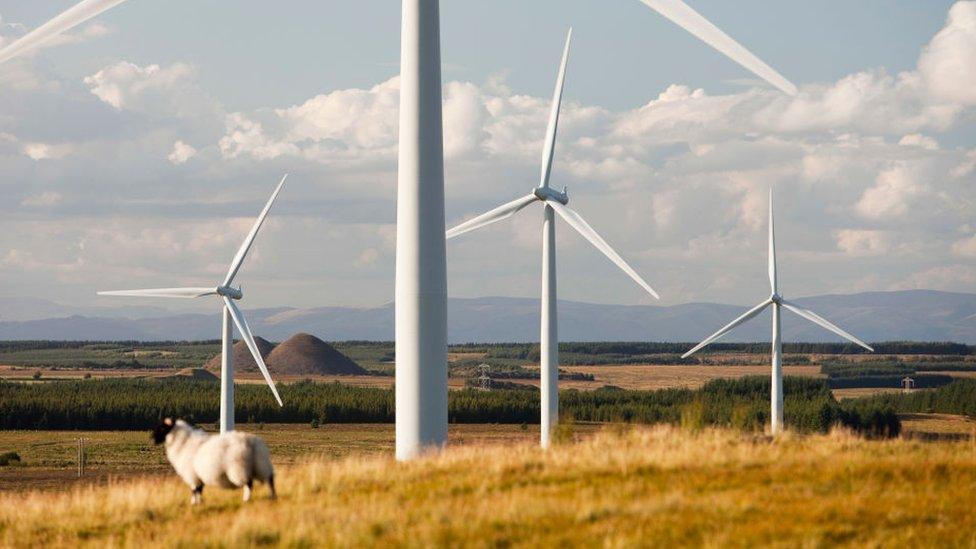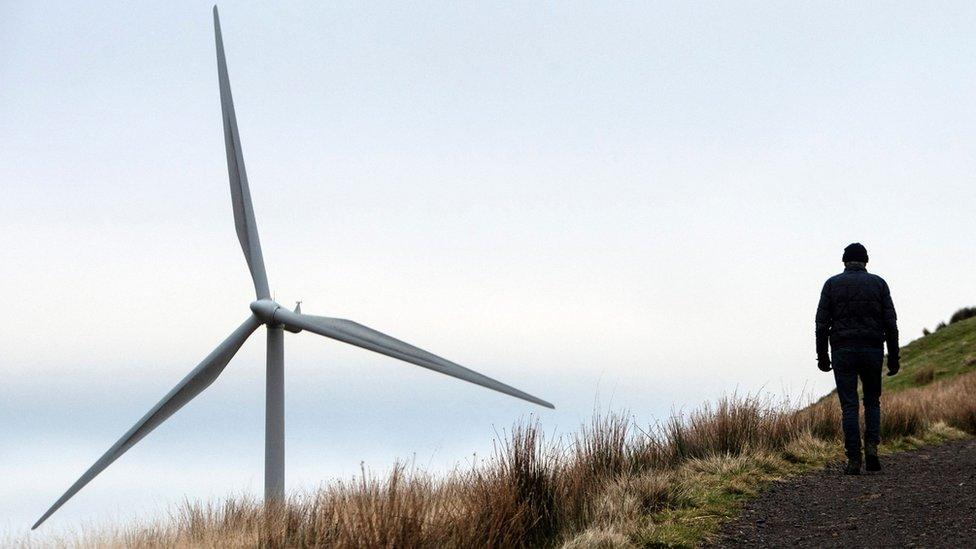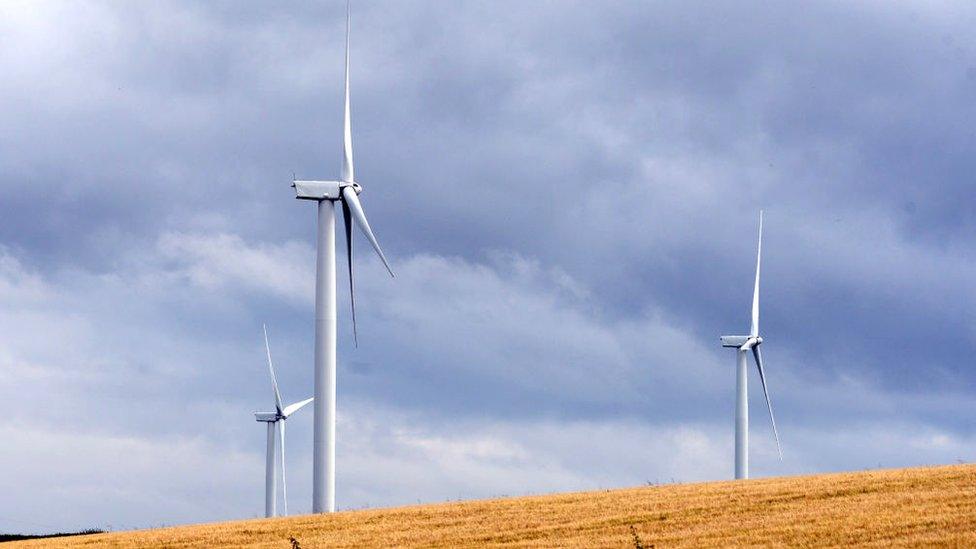Scotland generates record amount of renewable electricity
- Published
- comments

Windier weather and new capacity has helped Scotland generate a record amount of renewable electricity.
A total of 7,358 gigawatt hours (GWh) was produced in April, May and June, a 36% increase on the same period in 2021.
The figure was more than 25% greater than in any second quarter previously recorded.
Last year milder, less windy weather was blamed for a fall in renewable energy production in Scotland.
But that trend has since been reversed by greater wind speeds, increased rainfall and new power projects coming online.
The Scottish government said 18,568 GWh of renewable electricity was generated in the first half of 2022 - up 29% on 2021.
Net Zero and Energy Secretary Michael Matheson said the achievement would help deliver on Scotland's climate obligations.
Mr Matheson said: "We are in the midst of an energy crisis which has been compounded by the illegal war in Ukraine.
"It has prompted governments across the world to consider how the avoid this situation happening in the future.
"Scotland's energy transition can increase security of supply and help to make us far more resilient to future international energy price fluctuations."
Renewable energy capacity increased by 10.5% from June 2021 to 13.3 GW in the same month of this year, largely due to new wind farms becoming operational, particularly the Moray East project.
An additional 16 GW of renewable electricity capacity is currently in the pipeline, more than half of it onshore wind projects.
While renewable generation increased, there was also increased demand for electricity in Scotland during the first six months of 2022, following suppressed figures in 2021 due to Covid lockdowns.
Average daily electricity demand increased to 77.3 GWh in the first half of the year, up 8% on the 2021 figure.
'Fantastic opportunity'
The minister said wind power was already one of the cheapest forms of electricity and described expansion, supported by renewable technologies such as hydro power, as a "fantastic opportunity".
Mr Matheson said the plans would support a "fair and just" transition for the sector on the country's journey to becoming a "net-zero nation".
Fabrice Leveque, climate and energy policy manager at WWF Scotland, said: "It's great to see Scotland breaking records again for renewable power generation thanks to new power stations coming online and windy weather.
"With sky high fossil fuel prices causing a cost-of-living crisis, renewable electricity is helping to lower energy bills and cut carbon pollution.
"The challenge ahead is converting as much of our heating and transport to run on clean, home-grown renewables to protect us against volatile prices and climate change."
'Renewable energy powerhouse'
The national body which represents the sector said the figures showed Scotland was a "renewable energy powerhouse".
Nick Sharpe, director of communications and strategy at Scottish Renewables, said: "Scotland has an enormous renewable energy resource: our winds, waves, tides, rainfall and even our longer daylight hours are tremendous assets to the country, and renewable energy technologies enables us to use them to produce direct economic and environmental benefits.
"Renewable electricity generation makes up the vast majority of Scotland's gross electricity consumption and in the last decade, we have more than tripled our renewable electricity output."
Mr Sharpe added the sector now employed more than 27,000 people and generated £5.6bn of output.
Related topics
- Published1 April 2022

- Published2 November 2020
